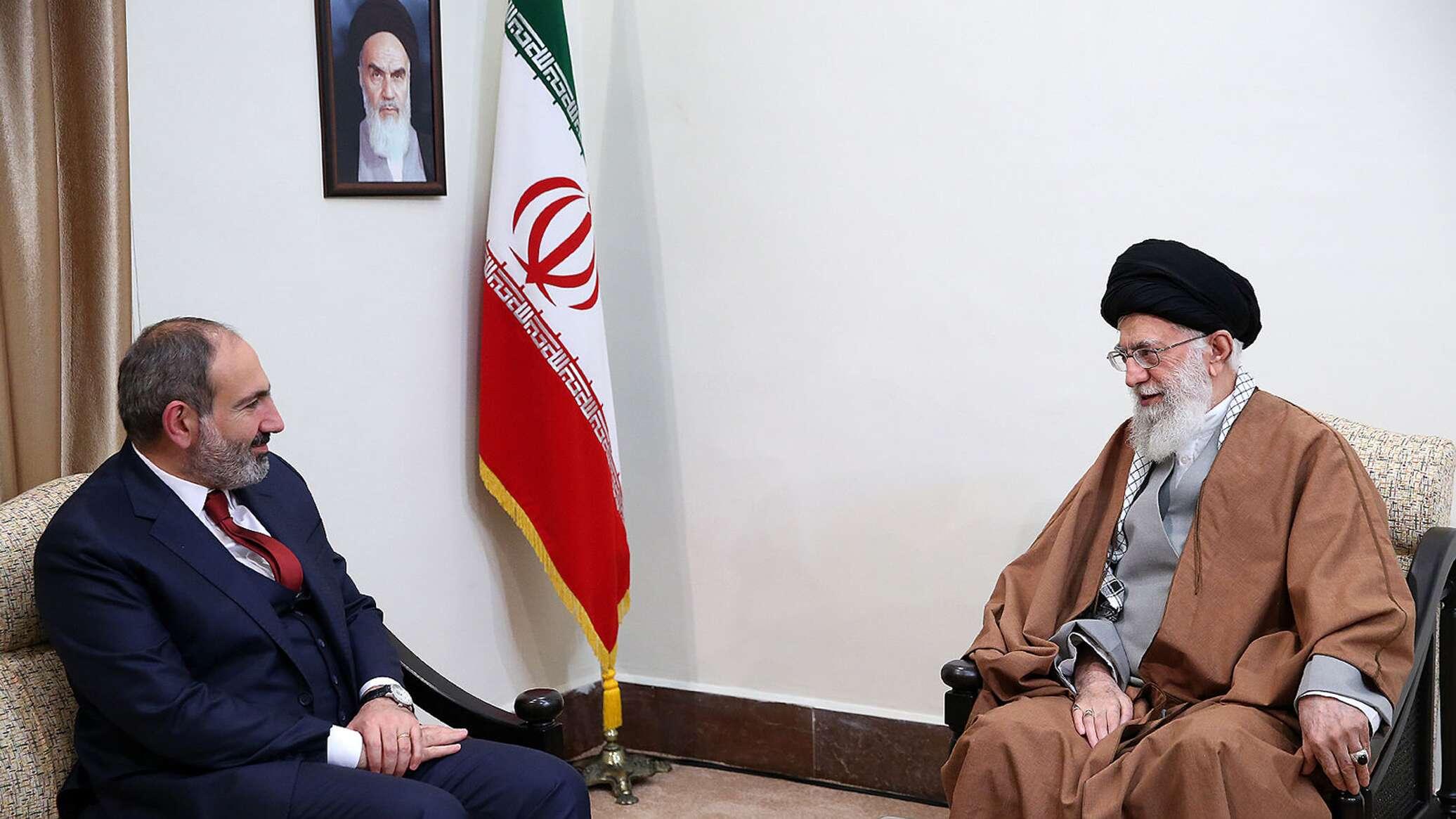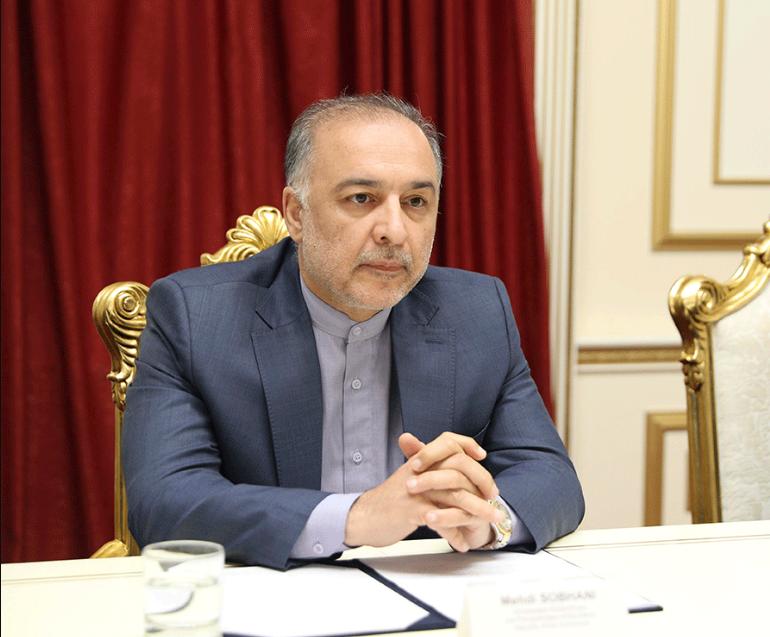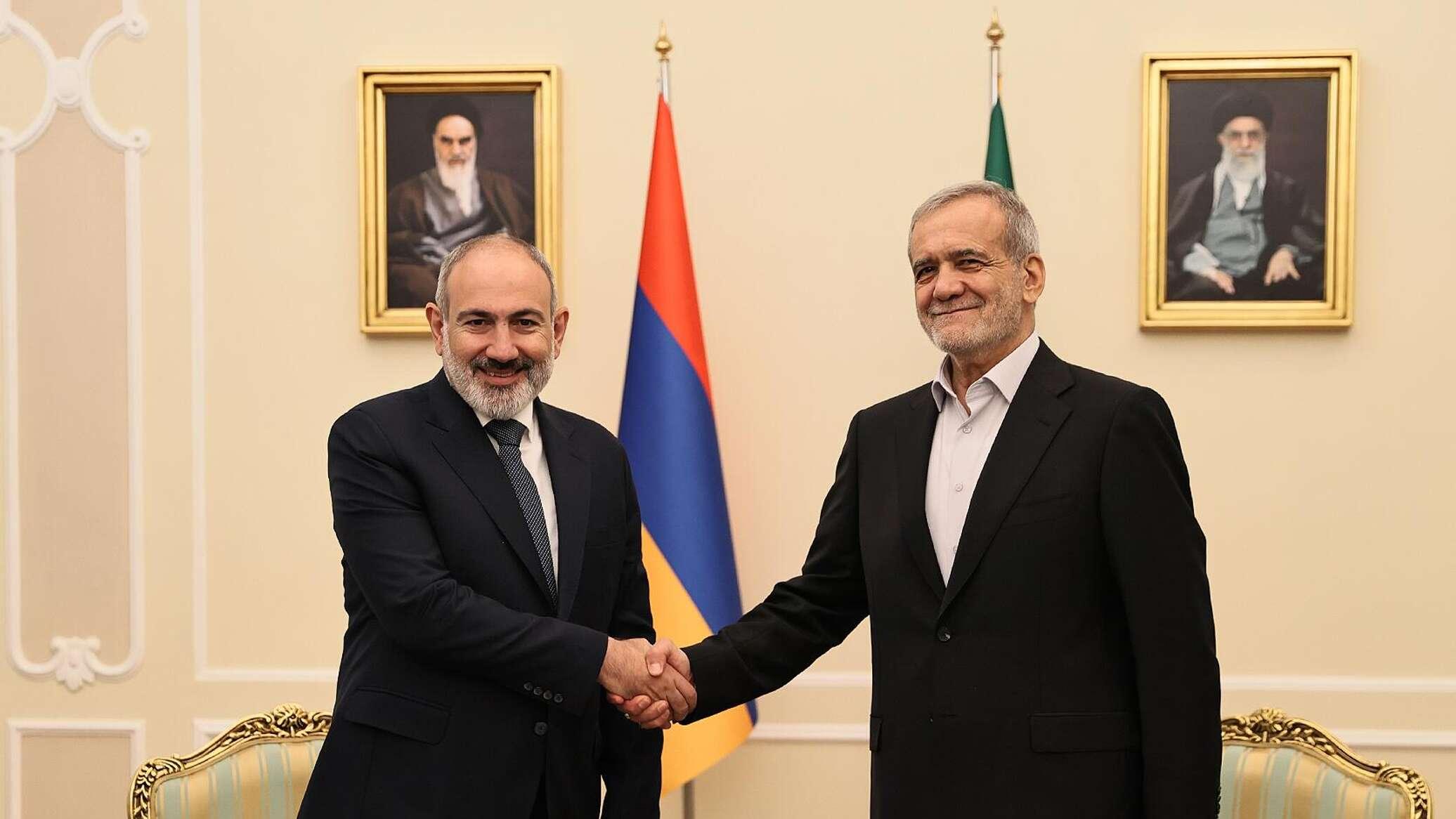Tehran and Washington’s strategic maneuvers Armenia’s diplomatic dilemma
Russian border guards left Yerevan's Zvartnots Airport last week. After three decades, Armenia might start taking charge of its own security and sovereignty, at least in the capital. However, this is not a certainty. The US Deputy Secretary of State has announced that a US military representative will begin working at the Armenian Ministry of Defence. Notably, no Armenian official has commented on this statement. The shift in geopolitical orientation is risky, and Yerevan immediately faced trade issues with Russia.
To address this, Pashinyan and his Western allies plan to rely on Iran, which appears ready to engage in a strategic deal with the West over Armenia, despite its alliance with Russia and China. These maneuvers aim to shift Pashinyan's course towards the West, but they do not contribute to normalizing relations or restoring historical unity in the region. Moreover, the plans are somewhat unrealistic—Baku has enough leverage to disrupt the game between Yerevan, Tehran, and Washington.
Yerevan and Tehran are currently satisfied with each other
On July 30, two prominent political figures arrived in Tehran for the inauguration of Iran's new president. One was a radically pro-Western post-Soviet politician, currently building partnerships with the US and the collective West. The other was a long-time leader of an Islamist organization fighting against Israel, and regarded by the US as a major global terrorist.
What awaited them in the Islamic Republic of Iran, a country known for its ongoing struggle against the West and Israel? It might seem surprising, but the first, Nikol Pashinyan, was received with the highest honors by both the president and the Supreme Leader. Khamenei even posted a special English-language tweet for him: “The Islamic Republic of Iran believes the Zangazur corridor is to the detriment of Armenia, and we reaffirm our steadfast position on this matter.”

In contrast, the second, Ismail Haniyeh, met a mysterious end—right in a heavily guarded government residence. Considering Iran's recognition of Palestinian groups, both politicians were regarded as nearly equal in rank from the perspective of Iranian diplomacy.
There is little surprising about this situation. The death of Haniyeh is far from the first such incident linked to Israel occurring on Iranian soil. Tehran had reasons not to be overly concerned about Haniyeh's security. While some factions within Iran might have wanted to improve relations with Hamas, overall, the relationship between Iran and the organization has been strained since the so-called “Arab Spring.”
Haniyeh’s assassination could potentially be part of a strategic move where Israel might focus on dismantling the remaining Hamas infrastructure (which has been associated with radical anti-Shiite groups that have long opposed Iran) while avoiding the complete destruction of Hezbollah. Netanyahu currently has a blank check from Washington for such actions.
Similarly, Tehran’s behavior towards the Armenian Prime Minister is also revealing. The issue isn't just that the unblocking of regional communications and the creation of the Zangazur Corridor would deprive Tehran of valuable opportunities. Iran earns revenue by providing alternative transit routes through its territory for Azerbaijanis and Armenians, and it wields significant geopolitical influence in the South Caucasus as a result.
However, the lavish reception of Pashinyan in Tehran and his notable satisfaction in this regard cannot be solely explained by these long-standing communication factors, as such grand receptions have not been typical in the past.
The underlying reason is different. Immediately after taking office, the new Iranian president pledged to work tirelessly to lift Western sanctions. These sanctions, imposed on Iran for its opposition to Western countries, can only be lifted if Iran changes its behavior towards greater compliance. In other words, it implies negotiations, deals, and other forms of covert imperialistic diplomacy. This approach is reminiscent of the Rouhani era but with increased intensity and scale.
Iranian leadership has been closely watching Pashinyan’s recent efforts to pivot Armenia towards the West. Tehran believes that Pashinyan has significantly raised the stakes in the geopolitical game surrounding Armenia and that the West is interested in integrating Yerevan into its confrontation with Russia.
However, Tehran recognizes that the West alone cannot keep Armenia afloat under the current conditions without Iranian support. Recent Iranian diplomatic moves suggest that Tehran is ready to assist in maintaining a pro-Western government in Armenia if it aligns with its own interests. The key issue is the price—revolutionary idealism in Iran has long since faded, leaving behind a pragmatic imperialist policy.
Iranian ambassador to Armenia: "We believe what we are told"
The recent diplomatic intrigues have vividly illustrated this situation. On July 12, Azerbaijan's embassy in Iran resumed operations. The following day, July 13, the Armenian-language broadcast of Radio Liberty published an intriguing interview with Iran's ambassador to Armenia, Mehdi Sobhani. In this interview, Sobhani highlighted Tehran's interest in finding a way to the West through Armenia.
Firstly, he virtually agreed with the US stance on Armenian refugees from Azerbaijan and responded ambiguously to the question about the need for negotiations between Baku and separatist representatives, at least allowing for the possibility of such talks.
Secondly, while supporting the opening of borders, he effectively opposed the Zangazur Corridor.
Thirdly, Sobhani expressed objections to Russian, EU, or international involvement in controlling Armenia's borders but welcomed Armenia's shift towards the West. "We respect that Armenia has decided to advance in various directions in its policy. However, it is important for us that such diversification in foreign policy does not harm Iran-Armenia relations," he stated.

In his interview, Sobhani outlined what Tehran expects in return for its positive stance on Armenia’s new direction. "The main issue for us is that we want Armenia to develop, including its infrastructure. We are also ready to engage in projects if European investments come in, such as roads, reservoirs, and energy sector projects, which would contribute to Armenia’s prosperity. For example, if the EU finances the construction of the Kajaran-Sisian road, Iranian companies will naturally be involved," the Iranian diplomat noted.
Sobhani also noted that Iran has already secured some contracts, such as those for repairing border and customs infrastructure in Meghri, funded by the European Bank for Reconstruction and Development. "The Armenian government has assured us that its relationships with other countries will not negatively impact its relations with Iran. And we believe what we are told," Sobhani added.
Last fall, Sobhani in an even more radical interview with CivilNet, discussed the "Karabakh people" and expressed opposition to the Zangazur Corridor. Regarding the latter, Sobhani emphasized: “Our position on that matter (the Zangezur corridor – ed.) has been declared at such a level that no one can change it. It is not the position of the common man or the middle man. This is the position of the supreme leader of our revolution, who has stated very clearly that we do not accept and do not tolerate any border or geopolitical changes."
It's no surprise that his statements were picked up by revanchist elements, who noted with satisfaction that the positions of Iran, the US, and the EU (especially France) in supporting revanchist tendencies are nearly identical. They suggested that Pashinyan is wasting time rather than seizing these illusory opportunities: "The Armenian government continues to reject calls for Armenians to return to Nagorno-Karabakh, despite the growing number of key regional and global players pressuring Azerbaijan to allow the more than 100,000 Armenians displaced last year to return to their homes."
Clearly, Iran is playing a dual game with the West, and the outlines of their potential deal have become clearer since last fall. On July 5, Sobhani criticized US policies in the South Caucasus and proposed the "3+3" format (Azerbaijan, Armenia, Georgia + Türkiye, Russia, Iran). However, the first point seems to be a continuation of Tehran's long-standing approach—preferring to collaborate with the EU while hesitating to improve relations with the US.
Regarding the second point, Sobhani has previously indicated that while the "3+3" format has its merits, the Iranian government is not insistent on it.
"We are not committed to any specific format. Our primary interest is in establishing peace. What matters to us is the goal: achieving peace, where countries respect each other's territorial integrity and sovereignty, avoid military solutions, and create an atmosphere of peace, stability, economic development, and prosperity. The 3+3 format is one of the paths that could lead to peace. It is one of the solutions that could calm the situation and bring countries together," he emphasized.
"Iran - a key ally"
The Armenian leadership's interest in aligning with Iran is understandable given their ideological and almost religious drive to shift their geopolitical orientation. This drive has raised pressing concerns about Armenia's future needs, and Iran could potentially address them. Consequently, the pro-Western Armenian government, by delaying a peace agreement with Azerbaijan, is signaling in non-Western directions, particularly towards Iran.
Recently, the Tehran-based diplomatic journal AVA Diplomatic published an interview with Armenian expert Garik Misakyan, who assured Iranian partners that Russia and Iran could help mitigate Azerbaijan's demands. He encouraged Iran to support revisionist efforts, claiming that the border between Iran and the separatist entity within Azerbaijan was once among the most secure, but now faces new threats. "Today, most Armenians consider Iran, not Russia nor the West, as one of their main allies," Misakyan declared.

One of the most striking gestures by the Armenian leadership towards Iran has been a dramatic 180-degree shift in its stance on Palestine and Israel. In 2020, Prime Minister Pashinyan was eager to open an embassy in Israel. Now, he is rushing to align with Tehran through a torrent of anti-Israeli rhetoric and by establishing strong relations with Palestinian organizations. Tehran has welcomed this move, and Armenia is set to open its consulate in Tabriz—something discussed since 2021, but which has only recently become a reality.
Undoubtedly, Pashinyan received approval from his Western partners for this radical pro-Palestinian stance—despite their silence on these dramatic shifts in Yerevan's policy. Moreover, during a briefing on August 1, a State Department representative declined to comment on reports (even if they were false) about Iranian arms supplies to Armenia. This is the same State Department that has always eagerly seized on any wild rumors about Iranian actions abroad.
Pashinyan is indeed under pressure to quickly strengthen ties with Tehran across all sectors. Last weekend, Russian authorities sharply restricted the import of vegetables and fruits from Armenia. Moscow is demonstrating its ability to put pressure on Yerevan, while the collective West has not yet shown willingness to offset these losses.
This could be devastating for Armenia, especially given its recent economic boom linked to sanctions against Russia. Between January and May, trade between Armenia and Russia nearly tripled to $7.5 billion. Expanding trade with Iran could provide an alternative to Russia, in case the West continues to overlook Yerevan's circumvention of anti-Iranian sanctions as it currently does with Armenia's efforts to bypass Western sanctions.
However, Iran cannot truly serve as an alternative. There are several reasons for this, but one is particularly straightforward. The route through Iran has long been a crucial "window to the world" for Armenia, and even in 2020, the Iranian border was the only one still open for Yerevan. Yet, the Iranian state has not adequately invested in the necessary infrastructure. Although construction with significant Iranian involvement has begun, such projects take years to complete.
Armenia’s current impoverished state cannot endure several years of such delays. This situation is compounded by the potential loss of the Russian route and the closure of roads through Georgia due to increasing Western sanctions against that country. Without a peace agreement with Azerbaijan, all the other solutions offered to Pashinyan by the US, France, the EU, and Iran are essentially futile. The only way to secure Armenia's statehood is through normalization with Azerbaijan.
The views and opinions expressed by guest columnists in their op-eds may differ from and do not necessarily reflect the views of the editorial staff.








